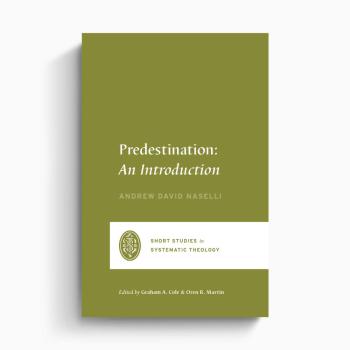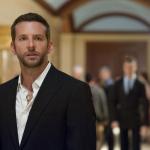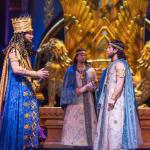Review of The Brothers Karamazov by Fyodor Dostoevsky
By JUSTIN HAWKINS
“See, this alone I found, that God made man upright, but they have sought out many schemes.” – Ecclesiastes 7:29
“Two extremes, gentlemen of the jury, remember that Karamazov can contemplate two extremes and both at once.” –Fyodor Dostoevsky, The Brothers Karamazov
Reinhold Niebuhr begins his masterful Nature and Destiny of Man with the concise and penetrating observation that “man has always been his own most vexing problem.” As befits a question of such difficulty, many writers put forward solutions to it that are too frequently unidimensional, shortsighted, or simply wrong. To this general insufficiency of answers to the question of man’s essential nature, Fyodor Dostoevsky is a shining exception, and he is so exceptional because he is so richly, vibrantly, and truly Christian. The Brothers Karamazov is a book of philosophical anthropology investigating the question “What is it to be a human?” In response to that question, Dostoevsky presents a picture of mankind and, more importantly, of each individual man, as a contradiction, each capable of great good and heinous evil.
Dostoevsky answers the question through his central characters, the Karamazov family, and understanding his anthropology requires answering the question “What is it to be a Karamazov?” Often the surname appears to be little more than an accusation of incorrigible corruption. “You are a Karamazov” is the observation often leveled against even Alyosha, saintly though he is. The Karamazov family itself recognizes the stain of bearing the Karamazov name, as Dmitri betrays when he, too, confronts Alyosha: “All we Karamazovs are such insects, and, angel as you are, that insect lives in you, too, and will stir up a tempest in your blood.” Yet a Karamazov is more complex than simply a debauched hedonist, and herein lies both the complexity and the accuracy of Dostoevsky’s understanding of the human condition. Rakitin confronts Alyosha with his surname in a unique way, by identifying his mixed heritage from the union of his inimical parents: “You’re a Karamazov yourself; you’re a thorough Karamazov – no doubt birth and selection have something to answer for. You’re a sensualist from your father, a crazy saint from your mother.”
A Karamazov is a fusion of contrarieties; he is a saint and a murderer, a philanthropist and a philanderer, an intellectual and a nihilist. Both the most pure and angelic characters in the book, and the most loathsome and detestable are Karamazovs. Dmitri, the elder brother, is a paroxysm of passion and affection made tepid by being unbridled: “You may be in love with a woman and yet hate her.” Smerdyakov, the “contemplative,” is identified by Fyodor as an unpredictable contradiction: “He may suddenly, after hoarding impressions for many years, abandon everything and go off to Jerusalem on a pilgrimage for his soul’s salvation, or perhaps he will suddenly set fire to his native village, and perhaps do both.” Even Fyodor himself, the most loathsome character in the book, is a contradiction of flippancy and incontinent, insincere remorse at his own despicability: “Corrupt and often cruel in his lust, like some noxious insect, Fyodor Pavlovitch was sometimes, in moments of drunkenness, overcome by superstitious terror and a moral convulsion which took an almost physical form.”
Ivan, the intellectual, is likewise a bundle of contrarieties, as rightly identified by Zosima the elder: “Meanwhile, in your despair, you, too, divert yourself with magazine articles, and discussions in society, though you don’t believe your own arguments, and with an aching heart mock at them inwardly.” Ivan’s chief characteristic is his intellect, but sin has corrupted that citadel as easily as it has led Fyodor to concupiscence or Dmitri to a violent rage.
Perhaps even Alyosha, the pietist, is not immune from the curse of the Karamazov: “My brothers are destroying themselves,” he went on, “my father, too. And they are destroying others with them. It’s ‘the primitive force of the Karamazovs,’ as Father Païssy said the other day, a crude, unbridled, earthly force. Does the spirit of God move above that force? Even that I don’t know. I only know that I, too, am a Karamazov…. Me a monk, a monk!…And perhaps I don’t even believe in God.” A Karamazov, a human being, is, by virtue of his sin, a contradiction in need of reconciliation that is possible only through Christ.
This anthropology is not just broadly Christian, but also specifically Evangelical. That is to say, it harmonizes with the doctrine of justification by faith alone. Against the Catholic understanding that God’s grace provides the opportunity for man to do his own good works and thereby acquire his own righteousness, Evangelicals understand that we are saved only through the righteousness of Christ imputed to us. This is necessary because at no point, whether in this life or the next, do we ever actually achieve our own righteousness. Even for the regenerated, our actions are tinged with sin that, while hopefully being weakened and ameliorated through lifelong sanctification, is never fully eliminated. Evangelical Orthodoxy agrees with Dostoevsky in his assertion that humans – even Christians – continue to be both an amalgamation of sin and righteousness until glorification (we never do see Alyosha achieve perfection). Thus, the good works of even the Christian are not an acceptable basis for our salvation, and even our most sanctified days still require repentance for their shortcomings, and grace to ameliorate their effects.
But the significance of this insight extends far beyond a mere bit of trivia about the rather arcane genre of Russian philosophical anthropology; it has contemporary resonance over 130 years after its publication precisely (again) because Dostoevsky is so faithfully Christian. Christianity holds that human nature is essentially static, and therefore insights hatched centuries ago are, perhaps, in danger of being inaccurate, but they are not in danger of falling out of fashion simply because they are so old. We read old books because they can tell us things about the world; they can tell us things about the world because some things about the world do not change.
As an example of the contemporary applicability of this Dostoevskyian insight, consider an excerpt from a news article from the ongoing child abuse scandal from Penn State University. From the June 23rd edition of the New York Times:
People expressed shock that a man they knew as a committed and selfless coach, a prominent fund-raiser for charity and a gregarious father figure to scores of aspiring football players and ordinary children alike could be capable of such crimes. Many, at least initially, refused to believe it.
These sentiments are nothing more than an inability on the part of neighbors, family members, and others who knew Sandusky well to reconcile his apparent public virtue with the commission of one of the most despicable crimes a human being can commit. This is because they are unaware of Dostoevsky’s insight into the inherently contradictory essence of human nature.
Christian anthropology makes sense of these phenomena in a way that no secular anthropology, whether Nihilist or Enlightenment, has been able to do. The Nihilist claims that human beings are marked by an insatiable will-to-power that permeates all of their actions and that causes men to use each other for their own gain and advantage. For the Nihilist, therefore, the will-to-power must be embraced. By contrast, the anthropology of the Enlightenment (and most of modern liberalism today) observes that a human is a being whose nature is capable of great good. From this observation, the modern liberal draws the implication that only deficient social institutions and lack of education stands in the way of human perfectibility.
Christian anthropology stands against these two impulses, but in such a way that it accepts the basic observations of each while rejecting their implications. When the gospel—as unwavering and straight as it is—confronts a culture or worldview that is wavering and serpentine, the gospel will sometimes appear more “progressive” and sometimes more “regressive” than the philosophies it challenges. This is why the gospel can affirm, for example, the Nietzschean analysis that human beings are often motivated by an insatiable, inherently selfish will-to-power, while simultaneously rejecting Nietzsche’s normative claim that such a will-to-power ought to be embraced. It is also why Christianity can affirm the observation that humans are capable of great good (they are, after all, created in the image of God) without accepting that they are therefore perfectable.
The Brothers Karamazov helps us see the world as it is, in all of its contradiction and possibility, and it helps us see that world through Christian eyes. Dostoevsky would not be surprised that a man like Sandusky could demonstrate rare talent and apparently exceptional moral standing, and could also commit such a loathsome crime, and neither should the Christian whose view of man is informed by the scriptural paradox of human nature.












